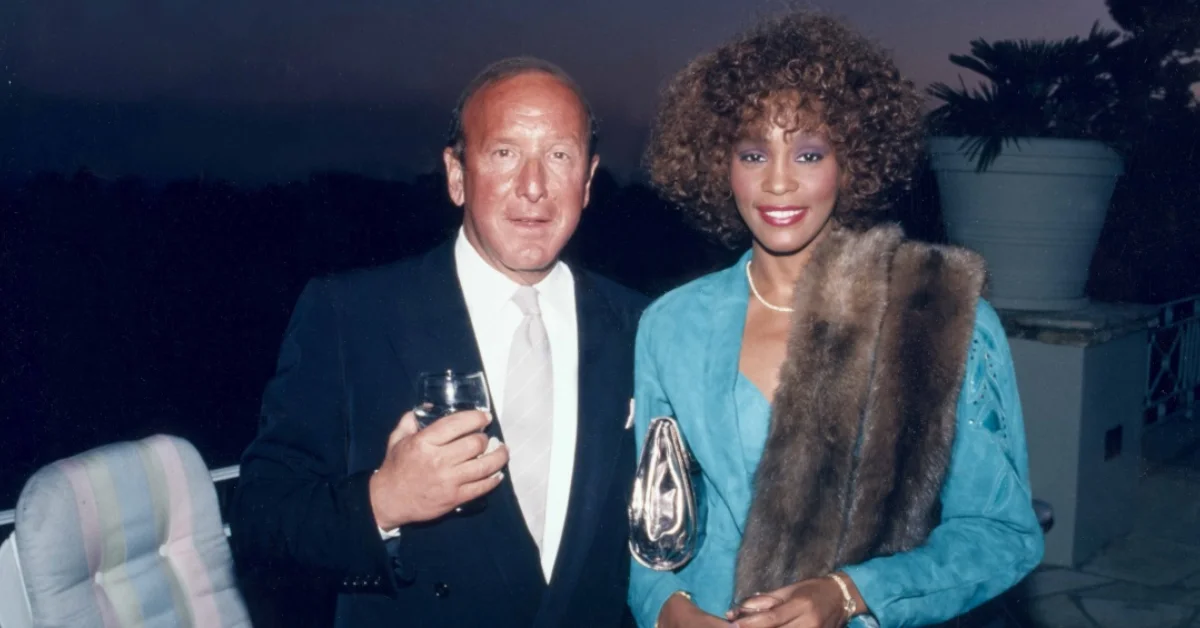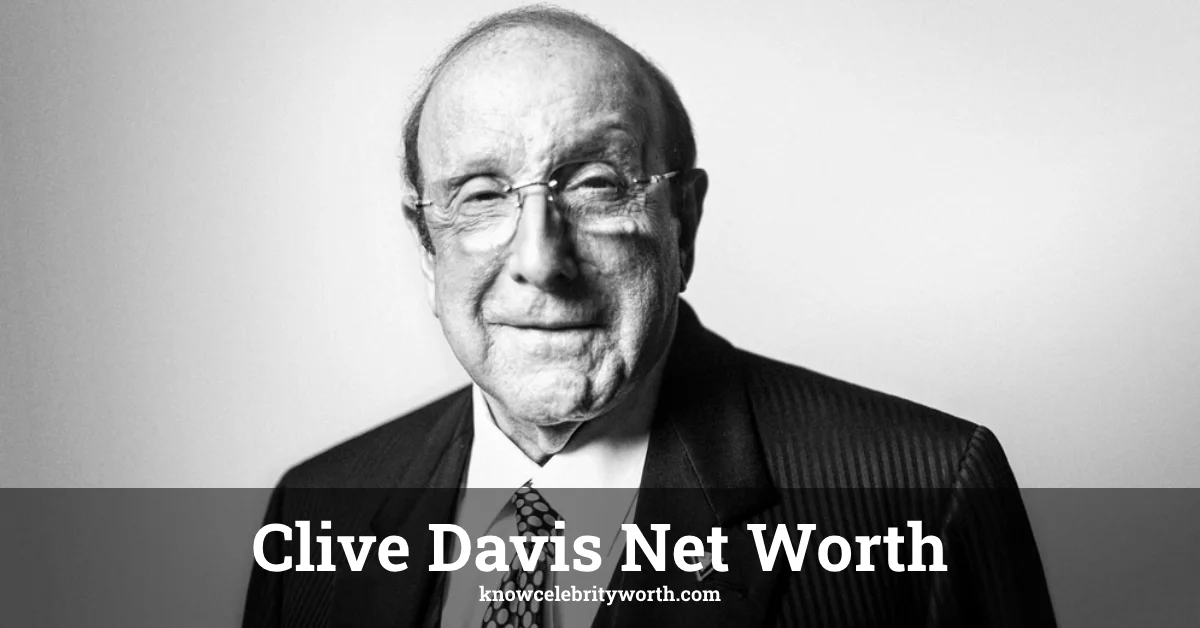Clive Davis stands as one of music’s most powerful figures. The legendary record executive helped shape careers of countless stars, from Whitney Houston to Bruce Springsteen. His business savvy turned struggling labels into industry giants and built him a fortune estimated at $850 million.
How did a kid from Brooklyn reach such heights? What smart moves grew his wealth? Let’s explore the money, career, and life of this music industry titan.
Clive Davis Net Worth
Clive Davis has amassed a net worth of approximately $850 million as of 2025. This wealth stems from his decades-long career as a record producer and music executive at major labels including Columbia Records, Arista Records, J Records, and Sony Music Entertainment.
His fortune puts him among the wealthiest music executives in the world, alongside figures like David Geffen and Jimmy Iovine. Davis built this wealth through smart business decisions, discovering major talent, and maintaining ownership stakes in music catalogs and companies throughout his career.
Davis has grown his wealth steadily over decades, with significant jumps coming from the sale of Arista Records to BMG and later from his role at Sony Music. He also maintains a valuable real estate portfolio and art collection worth approximately $100 million.
Early Life and Education
Born April 4, 1932, in Brooklyn, New York, Davis grew up in a working-class Jewish family. His father worked as an electrician and salesman. Davis faced early hardship when his parents died during his teenage years.
Despite these challenges, Davis excelled academically. He attended New York University on a scholarship, graduating with a degree in Political Science. He later attended Harvard Law School, earning his law degree in 1956.
His early career began not in music but in law. After graduating from Harvard, Davis worked at a New York law firm, eventually becoming counsel to Columbia Records before moving into an executive role there. This legal background proved valuable throughout his career, giving him an edge in contract negotiations and business deals.
Clive Davis’s Age
At 93 years old (as of 2025), Davis remains active in the music industry. Born in 1932, he’s witnessed and helped shape nearly the entire modern music business. His longevity in a fast-changing industry demonstrates his adaptability and business instincts.
Despite his age, Davis continues to influence music culture. He still hosts his famous pre-Grammy party annually, an event that attracts the biggest names in entertainment. His career spans from the vinyl era through streaming, yet he’s maintained relevance across these technological shifts.
Record Producer and Music Executive
Davis started his executive career at Columbia Records in 1965 when he became president despite having no music production experience. This unusual path—from legal counsel to president—marked the beginning of his remarkable career.
Career Highlights
At Columbia Records (1965-1973), Davis transformed the label by signing rock and folk artists like Janis Joplin, Santana, Bruce Springsinger, Billy Joel, and Aerosmith. This move diversified Columbia’s traditional lineup and boosted profits dramatically.
After his controversial departure from Columbia, Davis founded Arista Records in 1974. The label quickly became successful by signing artists like Barry Manilow and later discovered Whitney Houston. Davis’s ear for talent turned Arista into a powerhouse worth hundreds of millions.
In 2000, after leaving Arista, Davis founded J Records. He later merged with RCA Music Group and became Chief Creative Officer of Sony Music Entertainment. Throughout these moves, Davis maintained equity positions that significantly contributed to his wealth.
Perhaps Davis’s greatest talent was spotting stars before they broke through. He signed Whitney Houston, Alicia Keys, Kelly Clarkson, and many others, often against industry skepticism. Each successful artist added millions to both Davis’s personal wealth and his labels’ values.
How Clive Davis Earns His Wealth
Davis built his fortune through several key income streams:
- Executive salaries and bonuses from major music labels, often in the millions annually during his peak years
- Equity stakes in record companies, including founding stakes in Arista and J Records
- Ownership percentages in music catalogs and publishing rights
- Strategic investments in music technology companies
- Real estate appreciation and art collection growth
- Book deals, including his autobiography “The Soundtrack of My Life”
- Speaking engagements and consulting fees
His most lucrative move came when BMG bought out his stake in Arista Records, reportedly netting him over $150 million. Similarly, his positions at Sony Music Entertainment came with significant equity compensation that appreciated substantially.
Davis also earned producer credits on many successful albums, generating additional royalty streams separate from his executive compensation. His producer royalties from Whitney Houston’s albums alone generated substantial income over decades.
Real Estate and Art Collection
Davis owns several valuable properties that form a significant portion of his net worth:
His primary residence is a luxury apartment at the Ritz Tower in Manhattan, valued at approximately $6 million. He also maintains a weekend estate in Pound Ridge, Westchester County, estimated to be worth $10 million.
Perhaps most impressive is Davis’s art collection, valued at roughly $100 million. The collection features works by modern masters, including pieces by Andy Warhol, Willem de Kooning, and Marc Chagall. His art investments have appreciated significantly, outpacing many traditional investment vehicles.
Davis has said his art collection began as a passion rather than an investment strategy, but it has become one of his most valuable assets. He occasionally loans pieces to museums, enhancing both the art’s value and his cultural standing.
Personal Life

Is Clive Davis Married?
Clive Davis is not currently married. He has been married and divorced twice, with his last marriage ending in 1985. His personal life took an unexpected turn in 2013 when, at age 80, Davis publicly came out as bisexual in his autobiography “The Soundtrack of My Life.”
Clive Davis’s Wife
Davis first married Helen Cohen in 1956. The marriage lasted eight years before ending in divorce in 1964. His second marriage was to Janet Adelberg in 1965, which lasted until their divorce in 1985. Since then, Davis has not remarried.
Children
Davis has four children: Fred, Lauren, Mitchell, and Doug. His son Fred followed him into the music industry, becoming a music executive. Davis maintains close relationships with his children and grandchildren, often bringing them to industry events.
Despite his wealth, Davis has spoken about trying to raise his children with grounded values. He has established trusts for his family while also supporting various educational initiatives through charitable giving.
Awards and Recognitions
Davis’s contributions to music earned him substantial recognition, including five Grammy Awards. Most notably, he received the Grammy Trustees Award in 2000 for his lifetime contributions to the recording industry.
In 2000, he was inducted into the Rock and Roll Hall of Fame as a non-performer, recognizing his enormous influence on popular music. This rare honor for an executive reflects his exceptional impact on music history.
The Songwriters Hall of Fame awarded Davis the Hitmaker Award in 2000. Harvard University named a building after him following his donations to his alma mater. These accolades reflect his cultural impact beyond mere financial success.
Legal Issues
Davis’s career wasn’t without setbacks. In 1973, he was fired from Columbia Records amid allegations of misusing company funds to pay for his son’s bar mitzvah. Davis denied wrongdoing, stating the issue stemmed from a bookkeeping dispute rather than actual impropriety.
Another major controversy occurred in 2000 when he was pushed out of Arista Records, supposedly due to age. The move sparked public debate about age discrimination in the entertainment industry. Davis, then 68, responded by founding J Records, proving his career resilience.
During the payola investigations of the music industry in the 1970s, Davis was questioned but never charged with any wrongdoing. These investigations examined whether record companies paid radio stations to play certain songs—a practice Davis consistently denied participating in.
These controversies demonstrate Davis’s ability to navigate industry politics and rebuild after setbacks. Each time his career faced obstacles, he managed to emerge with new ventures that ultimately added to his wealth rather than diminishing it.
How Davis Built Lasting Wealth?
Davis’s financial success stems from his ability to spot both musical and business opportunities. Unlike many music executives who focused solely on hit singles, Davis built sustainable business models around artist development and catalog value.
His strategy of maintaining ownership stakes rather than just accepting salary compensation set him apart from peers. This approach meant he profited from the long-term growth of music assets rather than just short-term hits.
Davis also diversified his wealth beyond music. His real estate investments and art collection provided stability during music industry disruptions like the rise of digital downloads and streaming. This portfolio approach protected his wealth during industry transformations.
Perhaps most impressive, Davis continued growing his wealth well into his 80s and 90s, proving that business acumen in the entertainment industry doesn’t diminish with age. His continued relevance demonstrates how cultural knowledge translates to financial success across generations.
What can aspiring business leaders learn from Davis’s wealth-building approach? His career shows the value of combining creative instincts with business discipline, relationship building with contract savvy, and trend-spotting with long-term thinking.
The $850 million fortune Clive Davis built represents more than just money—it reflects decades of cultural influence and business innovation that transformed how music reaches audiences worldwide.
